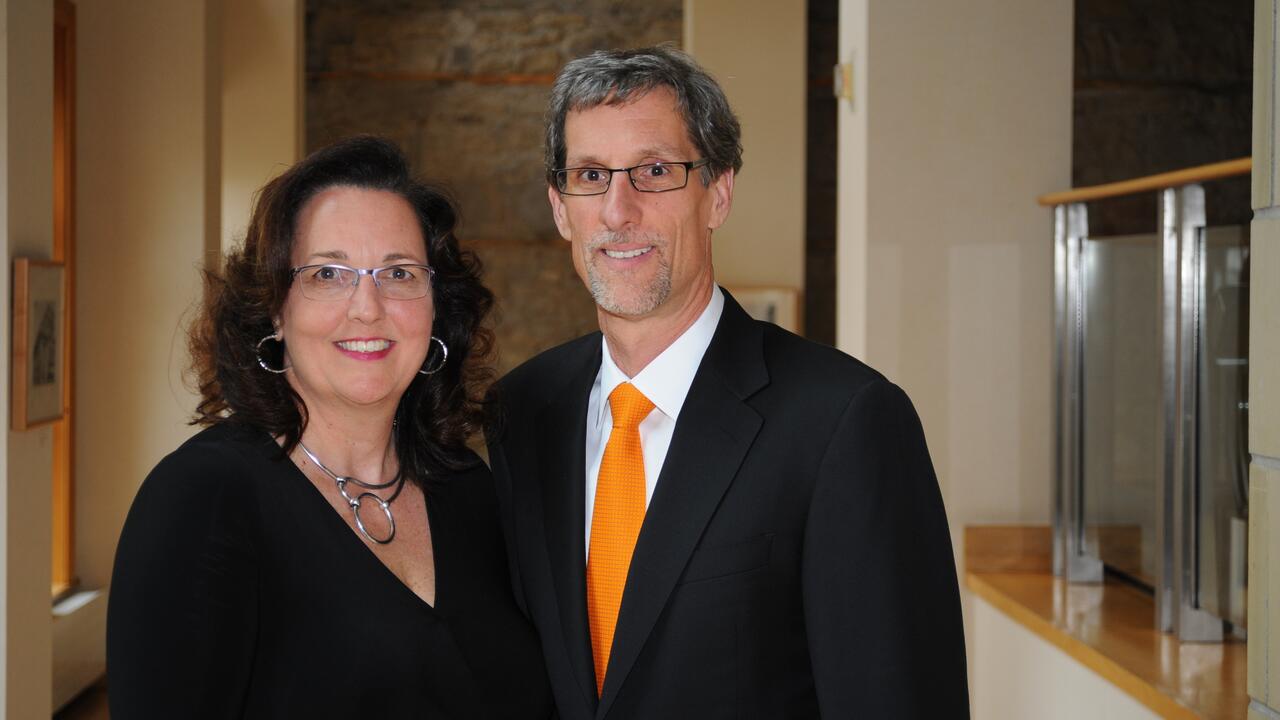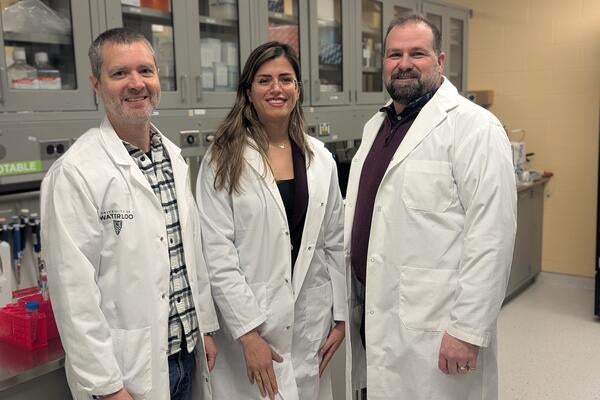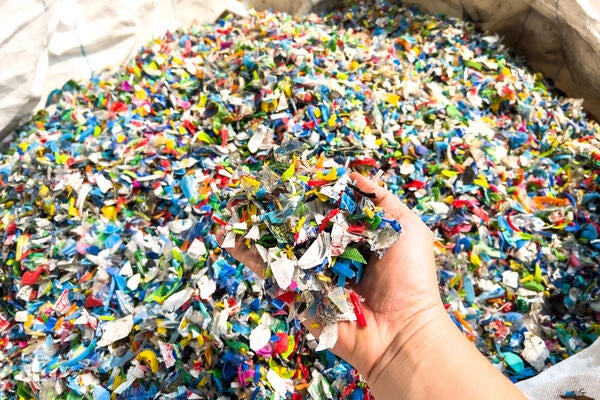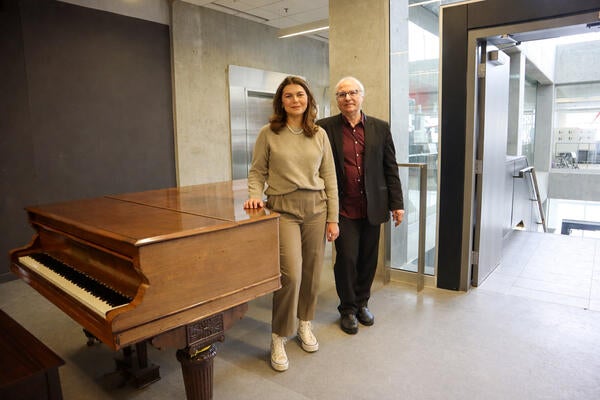
Supporting the Engineering Ideas Clinic to create better engineers
Graduates John and Anita Rossall are major donors to a program in which students will be able to get their hands dirty while gaining hands-on, real world experience

Graduates John and Anita Rossall are major donors to a program in which students will be able to get their hands dirty while gaining hands-on, real world experience
By Angela Pause Faculty of EngineeringWhen John and Anita Rossall first heard of the newly launched Engineering Ideas Clinic, the program resonated with them because they believe it is urgently needed in the engineering profession.
John (BASc 1984, Chemical) and Anita (BASc 1984, Civil) are like many other professionals who hire new graduates; they are impressed with the students from Waterloo and other top schools around the world, yet they have observed that the current generation have some knowledge gaps that previous generations of engineers did not. What the Rossalls noticed was that these brilliant young students, completely adept in the digital realm were, in many instances, oddly deficient in some of the “more old school” aspects of the profession.
“Kids don’t have the chance to take things apart or even fix cars in their parents’ garage,” says John, executive director, North America Repsol Oil & Gas Canada Inc., noting that most household products are thrown away instead of repaired by a curious daughter or son. “These experiences are ways to see, hands on, how the world around us is created, and the very things engineers need to understand - even if they never take another engine apart in their career.”
Anita says that she and John decided to financially support the Engineering Ideas Clinic at the Builder Gift Level to provide students with more hands-on, real world experience during their academic terms and expose them to the things that enhance their understanding.
“The way the education system and technology have evolved means these bright students graduate from high school with an excellent math, technology and science background,” says Anita, past president and chair for Alberta Science Literacy Association, and now retired. However, many have missed out on crucial experiences invaluable to an engineering student, such as art, woodworking shops and machining classes, or industrial arts and home economics, which imbue practical knowledge of how things are made and simultaneously lets them explore creatively.”
It’s this underlying knowledge of how products are engineered that is the impetus behind the Engineering Ideas Clinic, which will also be the flagship student learning space in the Engineering 7 building, now under construction. In the two-hour classes that extend across all 14 engineering bachelor degree programs, small teams of students will work on activities designed to encourage open-ended exploration, curiosity, team communication, problem solving and tinkering. Here, they will tackle things like reverse-engineering coffee makers or dismantling and reassembling internal combustion engines, allowing them “to get their hands dirty” in the pursuit of knowledge. This clinic-style method is similar to how medicine is taught and gives students an innate understanding that isn’t readily acquired in lectures.
“Co-op experience is, and was always, the big differentiator for Waterloo but this Engineering Ideas Clinic will be another crucial differentiator for students,” says John. “It is foundational engineering -- knowing how something works in real life makes for a better understanding of how to improve or innovate on a design. The Engineering Ideas Clinic will help students become better engineers.”
You can also support the innovative Engineering Ideas Clinic.
We have a range of gifting levels to meet the goals of our donors.
Engineering Ideas Clinic Gift Levels:
Founders $250,000+
Builders $100,000 - $249,000
Makers $50,000 - $99,000
Team Members $10,000 - $49,000

Read more
Researchers engineer bacteria capable of consuming tumours from the inside out

Hand holding small pieces of cut colourful plastic bottles, which Waterloo researchers are now able to convert into high-value products using sunlight. (RecycleMan/Getty Images)
Read more
Sunlight-powered process converts plastic waste into a valuable chemical without added emissions

University of Waterloo researchers Olga Ibragimova (left) and Dr. Chrystopher Nehaniv found that symmetry is the key to composing great melodies. (Amanda Brown/University of Waterloo)
Read more
University of Waterloo researchers uncover the hidden mathematical equations in musical melodies
The University of Waterloo acknowledges that much of our work takes place on the traditional territory of the Neutral, Anishinaabeg, and Haudenosaunee peoples. Our main campus is situated on the Haldimand Tract, the land granted to the Six Nations that includes six miles on each side of the Grand River. Our active work toward reconciliation takes place across our campuses through research, learning, teaching, and community building, and is co-ordinated within the Office of Indigenous Relations.